|
Tip of the Week Archive |
| Subscribe | Contact Fermilab Today | Archive | Classifieds |
Every Monday, a new Tip of the Week appears in
Fermilab Today, Fermilab's daily email publication for employees,
users and subscribers.
Tips of the Week Archive – 2014
| Dec. 15, 2014 | ||
| Keep the holiday season a safe season | ||
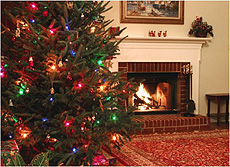
Since many of us are in holiday preparation mode, the Fermilab Fire Department would like to remind you to add a few more things to your already growing seasonal list of things to do and remember. | ||
| Dec. 8, 2014 | ||
| Before and after you turn those keys, look 360 degrees | ||
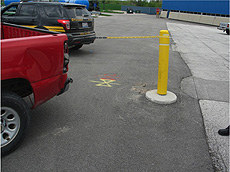
Although we at Fermilab ended fiscal year 2014 with a lower accident rate than in 2013, we still didn't reach goal zero, with backing accidents accounting for 50 percent of all vehicle accidents for the past year. While most vehicle accidents at Fermilab involved only property damage, bodily injuries have been recorded in the past. According to the National Safety Council, one out of four vehicle accidents can be blamed on poor backing techniques. Backing accidents cause 500 deaths and 15,000 injuries per year in the United States. | ||
| Dec. 1, 2014 | ||
| What's that smell? It's green energy! | ||
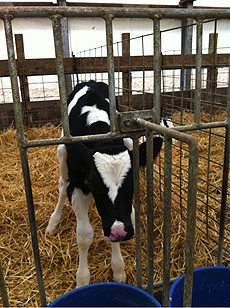
There is no doubt that humans create a lot of waste. It is impossible not to. But what if some of the nastiest waste we create from everyday life could create electricity? Some of the waste that Fermilab produces does just that. Wilson Hall's kitchen has grease traps that get pumped out every two months by a waste hauler. The waste hauler, Darling Ingredients International, takes this smelly muck and mixes it with other organic waste in one of two places to create electricity: Fair Oaks Dairy Farm in Indiana or the Downers Grove Sanitary District. Each has anaerobic digesters that provide energy for their operations. | ||
| Nov. 24, 2014 | ||
| Winter weather: road closures and parking restrictions | ||
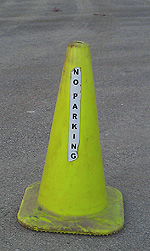
Green cones will soon begin appearing in parking lots across site — a sure sign that Fermilab is ready for winter weather. It's time to take more care walking in parking lots and in choosing where to park. And as in recent years, there will be road and parking lot closures. | ||
| Nov. 17, 2014 | ||
| Climate change and Fermilab's Site Sustainability Plan | ||
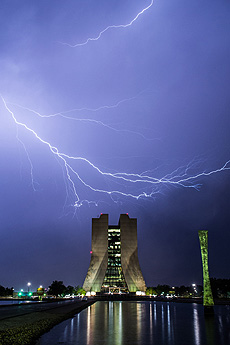
Once again, it is time for Fermilab, along with all other DOE facilities, to prepare a report on our sustainability efforts over the past fiscal year. We are also asked to look ahead to a plan for this fiscal year to help DOE and the federal government at large to fulfill national sustainability goals. The goals include efforts to improve energy and water efficiency, increase the use of renewable forms of energy, minimize the generation of waste, and design, build and operate safer, smarter, and more efficient buildings. | ||
| Nov. 10, 2014 | ||
| Computer Security Awareness Day is tomorrow | ||
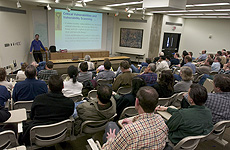
It is incumbent upon Fermilab's computer security team to ensure that our user community is well-trained and aware of cybersecurity issues. We are constantly reminded by cybersecurity incidents and near misses that uninformed or careless actions by a single individual can put the laboratory's entire computing infrastructure at risk. No matter how strong our walls of defense are, we must ensure that those authorized to use our systems are sufficiently trained to avoid inadvertent breaching of these defenses. | ||
| Nov. 3, 2014 | ||
| Space heater safety | ||
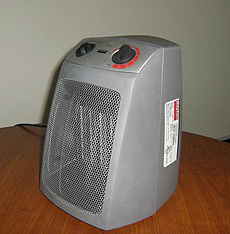
As the days turn cooler, many people find their workspace chillier as well. The use of space heaters is permitted at the laboratory, provided employees follow these conditions: | ||
| Oct. 27, 2014 | ||
| Bringing discovery and ecology into accord | ||
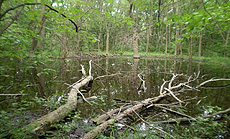
Fermilab is known as a protector and friend of the environment. We have preserved and reconstructed more than 1,000 acres of tallgrass prairie over the last 40 years. But other communities must be protected as well to preserve the overall ecosystem. Another ecosystem that is just as endangered as prairies is wetlands. | ||
| Oct. 20, 2014 | ||
| Call-n-Ride for cleaner air | ||
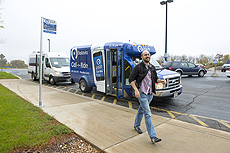
Have you always wanted to live in the city but not suffer the headache of taking the Eisenhower every morning on your way to the lab? Or maybe you aren't sure how to get from the train station to Fermilab. Now you can take the train to Geneva and catch the new Batavia Pace Call-n-Ride shuttle, which has a direct route to Fermilab twice each morning and three times in the afternoon. | ||
| Oct. 13, 2014 | ||
| Goodbye, Cryptocards. Hello, RSA tokens | ||
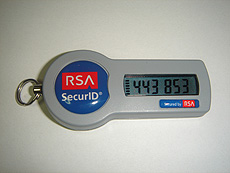
Many people need to log in remotely to Fermilab computing systems. Unfortunately, the most common way hackers steal passwords is to detect them as they traverse the network when a user logs in remotely. Consequently, one of our most important cybersecurity tasks is to prevent inadvertent disclosure of passwords. | ||
| Oct. 6, 2014 | ||
| It's Fire Prevention Week: Check your smoke alarms | ||
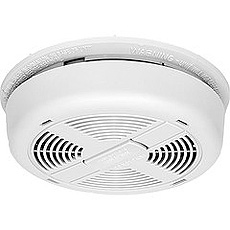
National Fire Prevention Week is this week. Every year we at the Fermilab Fire Department take advantage of this week to remind the Fermilab community about the need to be diligent and to develop good habits concerning fire safety at home and at work. Nearly 3,000 people a year die in fires in the United States. The vast majority of these tragedies are preventable with a just small amount of effort. | ||
| Sept. 29, 2014 | ||
| Preventing the spread of influenza | ||
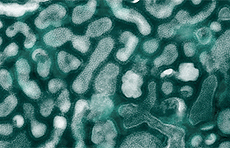
As fall approaches, thoughts of protecting oneself from influenza, or the flu, come to mind. The flu is a viral infection that is spread through air in droplets when someone with the infection coughs, sneezes or talks. Typically, influenza viruses circulate in the United States from late fall through early spring. The Centers for Disease Control and Prevention continue to recommend an annual influenza vaccine for all persons older than six months and who have no contraindication to the vaccine or its components. | ||
| Sept. 22, 2014 | ||
| Congratulations on receiving environment, health and safety certifications | ||
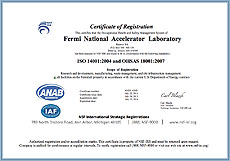
On Aug. 20 Fermilab completed its semiannual surveillance audit, conducted by NSF International (formerly the National Sanitation Foundation). The audit is a beneficial step in maintaining ISO 14001:2004 and OHSAS 18001:2007 certifications, which are related to environment, occupational health and safety. The audit involved assessments of Fermilab's research and development, manufacturing, waste management and site infrastructure management at all facilities on the Fermilab property in accordance with the current Department of Energy contract. | ||
| Sept. 15, 2014 | ||
| Keep out the noise: use hearing protection devices | ||
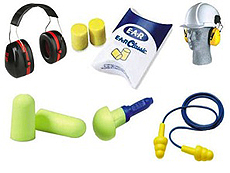
At low levels, noise can be irritating, but at high levels noise can actually damage your hearing. As you might expect, hearing loss becomes worse with exposures that are longer and louder. Exposure to noise at 85 decibels A-weighted ("A-weighted" refers to one of the international standards for measuring sound), or dBA, for longer than eight hours can cause noise-induced hearing loss. How loud is too loud? If you need to raise your voice to be understood at a distance of three feet, you should think about taking action. If you regularly work in noisy areas, you are likely a participant in Fermilab's Hearing Conservation Program, which requires annual training and audiometric testing. | ||
| Sept. 8, 2014 | ||
| How to screw in a light bulb | ||
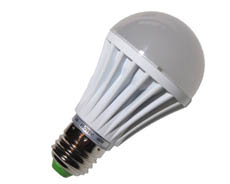
Have you ever heard the joke, "How many environmentalists does it take to screw in a light bulb?"? With recent advancements in lighting technology, an environmentalist might rewrite the joke to ask, "How many light bulbs does a smart consumer use over a lifetime?". Their answer would be, "Very few, because a smart consumer would use an LED bulb." According to EPA's ENERGY STAR Current, lighting accounts for 12 to 30 percent of energy use in the United States. Lighting uses about 12 percent of the total energy in a home, which is more than a refrigerator, dishwasher and clothes washer use combined. In a commercial building, it accounts for 30 percent (about the same as an air conditioning system). | ||
| Aug. 25, 2014 | ||
| Stay away from the bleeding edge | ||
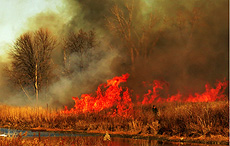
We are talking about the concept of "sustainability" more than ever these days, and the quotation marks around the word underscore the difficulty in understanding just what is meant by it. At its simplest, sustainability means managing resources now in a way that allows them to be replenished in time and in quantities sufficient to serve the future. It's sort of like not spending money faster than we make it. | ||
| Aug. 18, 2014 | ||
| Stay away from the bleeding edge | ||

I have written previously about security vulnerabilities associated with running unsupported operating systems, focusing on keeping patches and fixes up to date. However, there are also dangers in running new versions of operating systems too soon. When new versions of popular operating systems become available, Fermilab's Desktop Engineering Group evaluates these new releases and tests that all standard applications can still run properly. These tests are rigorous and thorough to ensure that nothing will break. Complex software interependencies can make this process time consuming. | ||
| Aug. 11, 2014 | ||
| Progress on Fermilab's Software Quality Assurance implementation plan | ||
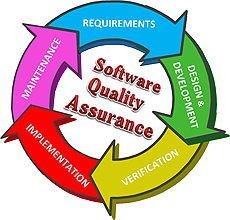
The implementation of Fermilab's Software Quality Assurance (SQA) Program is taking place across the laboratory. Thanks to the hard work of the divisions and sections, 988 software applications so far have been entered into the laboratory's Configuration Management Database, an inventory of all the applications used throughout the laboratory. | ||
| Aug. 4, 2014 | ||
| See into the future with eye protection | ||
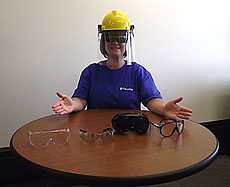
You may have heard the phrase "keep your eyes on the job." It means more than just paying attention to what you are doing; it means properly wearing the correct eye protection for the job you are doing. The form of eye protection you choose will depend upon the activity and degree of the hazard involved. | ||
| July 28, 2014 | ||
| Fermilab pilots composting program | ||
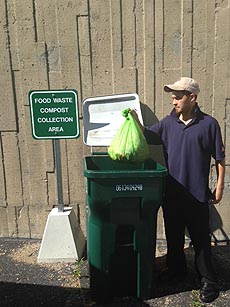
Some of you may have noticed the sign in the Wilson Hall east parking lot that says, "Food Waste Compost Collection Area." Since May, Southern Foods, Fermilab's food service contractor, has helped Fermilab minimize waste by participating in Fermilab's compost pilot program, thus diverting compostable waste from landfills. Between May 5 and July 18, Southern Foods has collected more than 4,200 pounds of compostable waste. Each kitchen workstation has a 5-gallon bucket lined with compostable garbage bags. All 14 of their employees have been trained on what is allowed in the compost bin, and posters in the work areas display acceptable compostable material. According to the Environmental Protection Agency, food waste makes up the largest percentage of waste that ends up in a landfill, about 35 million tons annually. When food waste is composted, it has many environmental benefits in addition to those associated with less waste in a landfill. When food waste goes into a landfill, all the nutrients it took to grow that food are lost. Composting can help bring some of the nutrients back into the cycle of growing food. It is also very beneficial for the soil, reducing the need for pesticides and fertilizers as well as increasing drought resistance and decreasing storm water pollution by helping soils hold water. | ||
| July 21, 2014 | ||
| Where the wild things are | ||
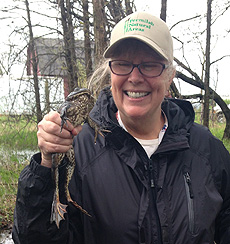
As Fermilab's site ecologist, it is part of my job to know which plants and animals are here and where on site they live. Lately, our focus has been on reptiles and amphibians. Not only does having this data help mitigate environmental impacts during project construction and day-to-day operations, but it helps tell a greater story about the habitat and heritage of the Fermilab landscape within the greater Chicago region. We regularly collaborate with members of the Chicago Wilderness Alliance to better understand how land management methods and ecological monitoring at Fermilab can meet some of the most important conservation goals for Midwestern ecosystems. Some monitoring efforts at Fermilab have been longstanding, such as the extensive bird survey project that began in 1987, while others are more recent. | ||
| July 14, 2014 | ||
| Security in the cloud | ||
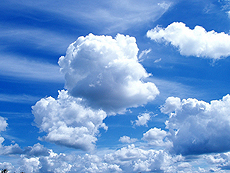
Many IT services that formerly ran on site are now moving to the cloud, a remote collection of computing resources that run the same services for large numbers of customers. Cloud services offer a number of advantages over on-site applications. First, there are significant economies of scale in providing services to so many customers. We also realize FTE savings since employees do not need to become experts in running and supporting these services. Finally, we are able to take advantage of using the latest hardware and software without having to spend time on upgrades. | ||
| July 7, 2014 | ||
| Quality assurance and quality control – what's the difference? | ||
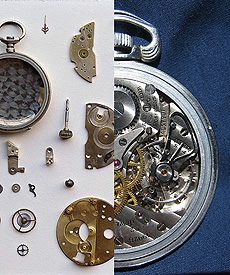
Many people use the terms quality assurance (QA) and quality control (QC) interchangeably. But each has a different meaning and, together, they make up a quality management (QM) system. For the mathematicians in the crowd, QA + QC = QM. At the highest level, QA is proactive and attempts to prevent problems, while QC is reactive and attempts to detect problems while fabricating a product or providing a service. Quality assurance focuses on developing a systematic approach to activities, one that will help us avoid problems and deliver an end product that meets the expectations of our customers. Examples of QA are using qualified workers, following an accepted design process, procuring appropriate materials and services, controlling materials, following written procedures, investigating failures, documenting and applying lessons learned, and auditing work processes. Fermilab's Quality Assurance Program is in line with the DOE QA Order 414.1D. | ||
| June 30, 2014 | ||
| A safe and happy Fourth of July | ||

The Fourth of July holiday is just around the corner, and many laboratory staff and users will gather with friends and family for picnics and perhaps attend a community fireworks presentation. The Fermilab Fire Department hopes everyone will have fun on Friday. It would also like people to return to work uninjured after the holiday. Keep in mind that grills and fireworks can be very dangerous and can cause severe injuries when improperly used. | ||
| June 23, 2014 | ||
| Looking at life cycles | ||
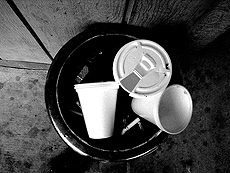
Have you ever wondered how your coffee cup got made or what exactly happens to it when you throw it in the trash? It is not instinctive to think about the flows of material, energy and water that are required in making a coffee cup, but if you have, you were thinking of some of the steps in its life cycle. You may have heard the term life cycle analysis or cradle-to-grave analysis. When companies try to sell their products as green, sustainability professionals create detailed life cycle analyses to evaluate the environmental impacts in these products' life cycles. | ||
| June 16, 2014 | ||
| The new look of Fermilab's eastern lakes | ||

Have you noticed the changes over the last couple of years in DUSAF pond and A.E. Sea, near Fermilab's east entrance? The lakes were lowered to decrease flooding in the Village and to alleviate a number of harmful impacts across many different systems. In addition to contributing to unsafe driving conditions when water floods over the roadway, the high water levels also intensified the pressure and infiltration of water into the sanitary sewers, saturated wooden building support structures and severely tested an outdated storm sewer system made of clay bricks that were never meant to be constantly submerged. | ||
| June 9, 2014 | ||
| Self-inspection for security | ||
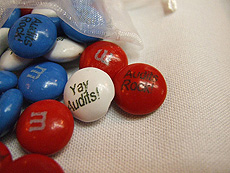
Fermilab's cybersecurity team constantly scans and assesses the laboratory site and computing operations for security vulnerabilities. As most Fermilab Today readers know, finding vulnerabilities before a malevolent outsider does is critical. Less obvious, however, is that it's important to find and fix these flaws before an external auditor discovers them. Unmitigated vulnerabilities may be seen as evidence of deficiencies in our security program. | ||
| June 2, 2014 | ||
| Don't let Mother Nature spoil your summer fun | ||
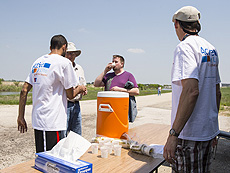
As we approach the end of spring and prepare to say hello to warmer days, be aware of hazards that can ruin your summer. Working outside in the sun and heat can expose you to hazards such as heat exhaustion, heat strokes, skin cancer and dehydration. Ultraviolet rays are the most damaging element of sunlight. Cumulative exposure to UV radiation can cause damage to the cornea and lead to cataracts or even permanent blindness. When working outdoors, take the following precautions to reduce your risks: | ||
| May 19, 2014 | ||
| Two wheels or four, let's all practice bicycle safety | ||
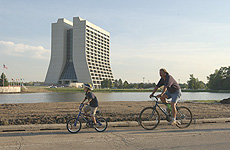
May is National Bike Month, sponsored by the League of American Bicyclists and celebrated in communities from coast to coast. Established in 1956, National Bike Month is a chance to showcase the many benefits of bicycling — and encourage more folks to give biking a try. Many of Fermilab's neighbors enjoy bicycling through the Fermilab grounds on the roadsides, and a number of employees also bike to work. Since we have so many bicyclists on site, we should all learn the rules of bicycle safety, whether we get around on a bike, on foot or in a vehicle. | ||
| May 12, 2014 | ||
| SWaMP: Fermilab's Surface Water Management Program | ||
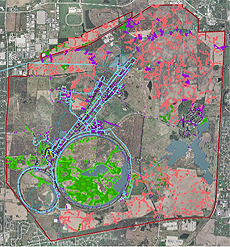
The fulfillment of Fermilab's historic scientific mission is possible thanks to the cooling mechanisms put in place when the laboratory began. In particular, the industrial cooling water system, which relies heavily on surface water components such as lakes, ponds and ditches, ensures that accelerator components do not overheat while delivering high-power particle beams to the lab's various experiments. Fermilab has a responsibility to create a holistic surface water management program for the laboratory site. The upcoming increases in beam intensity and in the number of projects demand a thorough review of the current state of surface water infrastructure and future operational surface water needs. Such a review, along with subsequent periodic reviews, will inform a robust surface water management program. | ||
| May 5, 2014 | ||
| Fermilab Natural Areas gets a Strategic Plan | ||
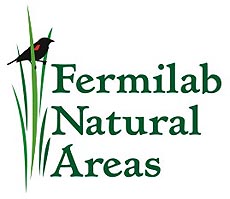
Part of Fermilab's "personality" is our pride in the land we occupy. Robert Wilson, the laboratory's first director, instilled a sense of place that has continued for more than 40 years. In 1975, with the assistance of Robert Betz, we began our history of ecological land stewardship with the first handful of acres of tallgrass prairie reconstruction. Fermilab now boasts over 1,100 acres of reconstructed prairie and a fully fledged philosophy of ecological land management. In 2008, in the face of declining budgets and increased demands on our Roads and Grounds Department, a group of volunteers decided to create Fermilab Natural Areas, a not-for-profit corporation dedicated to caring for the land at Fermilab. The idea behind FNA was to enable an increase in conservation and restoration of the natural areas. | ||
| April 28, 2014 | ||
| Heartbleed exposed: what it is and how it affects you | ||
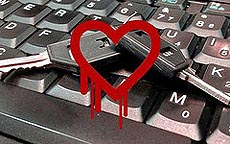
Software is never completely free from bugs. Occasionally, a seemingly trivial bug can have far-reaching consequences. The Heartbleed bug in OpenSSL, which has gotten much media attention recently, is an example. OpenSSL stands for open secure socket layer. This widely used set of software enables websites that might be collecting sensitive information to reliably identify themselves. This helps assure customers that they are dealing with those they think they're dealing with. It also provides secure encryption of data sent over the Internet so it cannot be "overheard" by electronic eavesdroppers. | ||
| April 21, 2014 | ||
| What could possibly go wrong? | ||
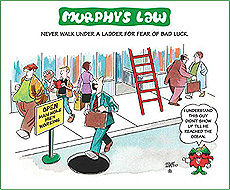
When most people start a new task, they tend to assume that things will go right. It is human nature to be optimistic and focus on how things will get done rather than think about what could go wrong. You consider the task and develop a set of actions that will inevitably drive you to the goal. Unfortunately, life is seldom this simple. Murphy's Law states that anything that can go wrong will go wrong. Although the "law" isn't a hard and fast rule of nature, it's good to keep in mind. If you don't think about what could go wrong before you start a task, you risk discovering the weaknesses along the way — and often too late. This is often a major source of accidents, delays, increased costs and compromised quality. | ||
| April 14, 2014 | ||
| Only the best: high-quality software at Fermilab | ||

We all have certain expectations for how particular pieces of software should perform. At Fermilab, we develop and use highly sophisticated software to meet the needs of our scientific program. We also use commercial applications that have been customized or configured to meet specific operational needs. Regardless of the application, it's important that the laboratory's software meets or exceeds the requirements or expectations for its intended use. Quality software has always been a priority. Our most current effort, to help ensure that the software we develop and use meets performance requirements and specifications, involves a team of individuals from across the lab who developed the Fermilab Software Quality Assurance program. | ||
| April 7, 2014 | ||
| Managed print services offer big sustainability benefits | ||
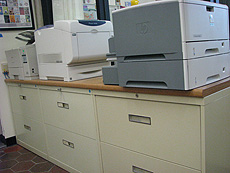
The Core Computing Division has been rolling out a new managed print service (MPS) operated by Dell Managed Services and, in the process, is making Fermilab a little bit greener. Managed print services, soon to be deployed sitewide, will be centrally managed and ensure not only that we use up-to-date devices, but also that the laboratory is not using more than what is needed to print, fax or scan. | ||
| March 31, 2014 | ||
| Sustainable buildings | ||
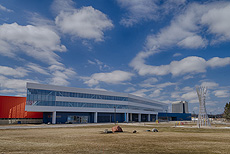
Last week, the Grid Computing Center (GCC) became the first Fermilab building to attain 100 percent of the Guiding Principles for High Performance and Sustainable Buildings, a federal mandate to dramatically increase the efficiency and sustainability of federally owned buildings. | ||
| March 24, 2014 | ||
| Federated identity: connecting to worldwide networks | ||

In the real world, you frequently need to identify yourself to prove that you are really you. One common proof of your identity is your driver license. Fortunately, you don't have to carry a separate driver license for every state you travel to in order to, say, pass an airport security check. But this is exactly the situation that prevails in cyberspace, where you need different identification methods for almost all the services you want to use. | ||
| March 17, 2014 | ||
| Fermilab heritage | ||
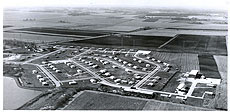
Ever wondered why farmhouses and barns are part of the landscape at a physics research lab such as Fermilab? Well before there was an energy, intensity or cosmic frontier, there was an agricultural frontier, and before there was a Fermilab, there was a farming community. | ||
| March 10, 2014 | ||
| The dangers of laser "toys" | ||
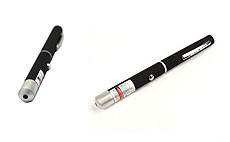
A recent Nature paper describes the cases of five children in the UK who received eye injuries as a result of playing with laser "toys." These children, between the ages of eight and 15, suffered reduced vision and had identifiable damage to their retinas. All reported playing with these so-called toys before their eye problems began. In the United States, the FDA regulates laser devices, including laser pointers. Laser pointers should be labeled with the correct output power and class. Handheld lasers of any color, or wavelength, that have a power output of greater than 5 milliwatts can pose significant eye hazards and should not be used, especially by children. | ||
| March 3, 2014 | ||
| How can I recycle? Let me count the ways | ||
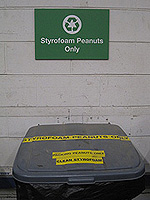
We've all heard the phrase "reduce, reuse, recycle." Reducing waste is the best option of the three: Purchasing only what you really need means using less resources. Reusing items saves them from being tossed in a landfill, where they are no longer useful to anyone for any purpose. Recycling is perhaps the easiest alternative to throwing something in the trash. But with many more items that are able to be recycled than before, recycling rules can be hard to follow. What do I do with plastic packaging? Why can't I put an item with the no. 6 recycle symbol in the recycling bin? And where do I take these items? | ||
| Feb. 24, 2014 | ||
| Managing the ecosystem | ||

Soon the snow will all be gone, and we will once again be outside enjoying the outdoors in an unfrozen state (trust me on this!). A large part of our efforts to manage and care for this site will involve conservation and restoration efforts in our natural areas. How do we go about allocating limited resources to bring the most environmental value to the site? One guiding principle is ecosystem management. While it's natural to think that our efforts should be directed at helping individual species or even a particular community, managing the ecosystem is much more effective, but also more complex. | ||
| Feb. 17, 2014 | ||
| One-two punch: two-factor authentication helps prevent cyberattacks | ||
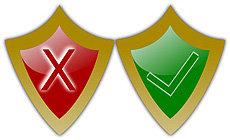
"Greetings. This is to inform you that your credit card information from our point-of-sale system has been accessed by unauthorized individuals." Many of you may have received communications similar to this recently, as two major national retail chains have revealed that their systems containing customer personal information, specifically, credit card data, had been compromised. While Fermilab does not process any credit card data (all purchases from lab organizations utilize third-party processors), we do handle other sensitive information that we need to protect. | ||
| Feb. 10, 2014 | ||
| Tracking lessons learned | ||
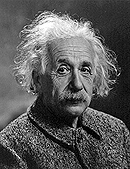
Learning from past events and projects is a good thing, both at home and at work. By sharing lessons learned, we can increase safety, improve quality and reduce the cost of our products and processes. Many divisions, sections and centers here at Fermilab already keep records of lessons learned. But what is the best way of collecting and sharing them at a laboratory of this size? How can one make sure that all employees learn about the information that is relevant to them? | ||
| Feb. 3, 2014 | ||
| New Illinois law bans hand-held cell phone use while driving | ||
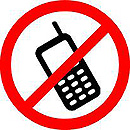
A new Illinois state law permits the use of some electronic devices while driving, but here at Fermilab the rules are stricter. While texting and driving is illegal, as of Jan. 1, 2014, House Bill 1247, PA 98-0506 states that chatting on a hand-held cell phone while driving is now also a traffic violation in the state of Illinois. A person who is caught violating this law will be fined a maximum of $75 for a first offense, $100 for a second offense, $125 for a third offense and $150 for a fourth or subsequent offense. Offenders could also face having a moving violation on their driving record. | ||
| Jan. 27, 2014 | ||
| RECs support clean energy | ||
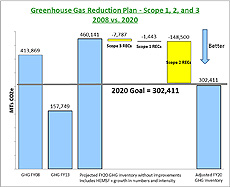
Fermilab's mission requires enormous amounts of energy to produce scientific results in the field of high-energy physics research. The lab must decrease its carbon footprint and has very specific sustainability goals set forth by the DOE, which are driven by the Executive Order 13514. The laboratory has made efforts to decrease greenhouse gases, or GHGs, related to commuting, business travel, building use and industrial processes. Yet compared to the electricity needed for the machines and facilities that do the science, the energy saved by these efforts is small. | ||
| Jan. 13, 2014 | ||
| Burning-wood ecology | ||
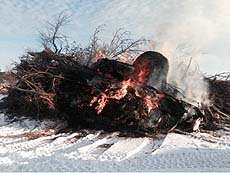
Part of the job of caring for the Fermilab site is occasionally removing unwanted vegetation. An integral part of the task of restoring large land areas to a productive and diverse state is removing unwanted woody vegetation, such as European buckthorn and dead and potentially unsafe trees, like the hundreds of ash trees killed by the emerald ash borer over the last 10 years. Dead trees in unpopulated areas of the site are normally left to provide habitat for birds, mammals, insects and other invertebrates. Restoration of woodlands choked by weedy, non-native species often requires lots of clearing before restoration can be effected. | ||
| Jan. 6, 2014 | ||
| Quality assurance guidelines in one handy manual | ||
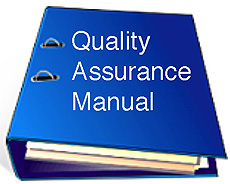
Quality assurance at Fermilab is integrated into one labwide Quality Assurance Management System. It is a set of interrelated elements that Fermilab uses to plan, direct, control and improve how quality policies and procedures are established, implemented and monitored. A vital part of this management system is the Fermilab Quality Assurance Manual (QAM). Like the Fermilab Environment, Safety and Health Manual, it collects the elements of the Quality Assurance Management System into one place for easy reference. Chapters are reviewed and approved in the same way as the FESHM and the Fermilab Radiological Control Manual. | ||
Safety Tip of the Week - Current Archive
2014 Safety Tip of the Week Archive
2013 Safety Tip of the Week Archive
2012 Safety Tip of the Week Archive
2011 Safety Tip of the Week Archive
2010 Safety Tip of the Week Archive
2009 Safety Tip of the Week Archive
2008 Safety Tip of the Week Archive
2007 Safety Tip of the Week Archive
2006 Safety Tip of the Week Archive
2005 Safety Tip of the Week Archive
2004 Safety Tip of the Week Archive
Return to Current Fermilab Today